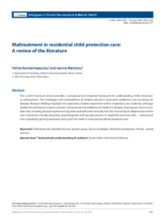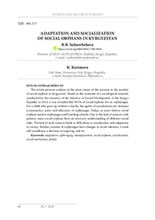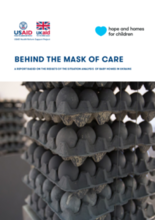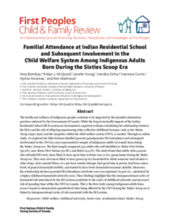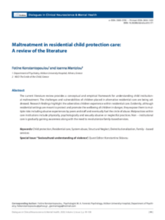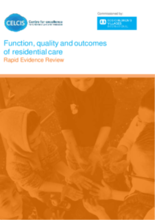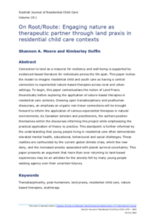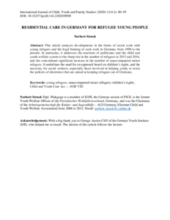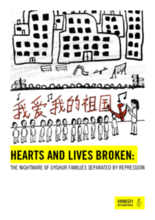Displaying 351 - 360 of 1511
The current literature review provides a conceptual and empirical framework for understanding child institutional maltreatment.
This article presents analyses of the main causes of the increase in the number of social orphans in Kyrgyzstan.
This report presents the findings of the 2019-2020 assessment conducted within the Pilot assessment of residential healthcare facilities for children and development of recommendations for reform in five baby homes of Dnipropetrovsk, Poltava and Kherson regions of Ukraine. In addition to the findings from the assessment of baby homes, the report presents results from the region assessments regarding needs in the medical rehabilitation, paediatric palliative care, and social services for children aged 0-6 years and their families.
This report from Save the Children Norway explores what child welfare institutions in Norway are doing to protect children in their care from the risk of online sexual offences.
Through an online study, the authors of this paper explored the links between familial (parents/grandparents) Indian Residential School (IRS) attendance and subsequent involvement in the child welfare system (CWS) in a non-representative sample of Indigenous adults in Canada born during the Sixties Scoop era.
The current literature review provides a conceptual and empirical framework for understanding child institutional maltreatment.
This review seeks to provide an overview of the existing research on residential care, including the function of residential care, what facilitates 'quality' care in residential care, and what effect residential care has upon outcomes for children and young people.
This paper invites the reader to imagine residential child and youth care as having a central connection to experiential nature-based therapies across rural and urban settings.
This article analyzes developments in the forms of social work with young refugees and the legal framing of such work in Germany from 1990 to the present.
This report from Amnesty International presents testimonies from six parents residing in Australia, Canada, Italy, the Netherlands and Turkey who have been separated from their children, who are "trapped" in China.

